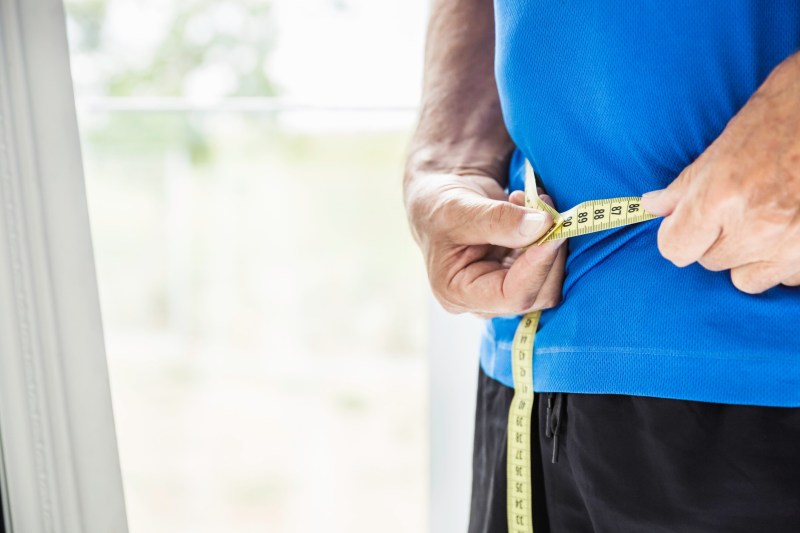Losing weight is an impressive achievement, and I have seen how it can positively affect people when working with my clients. However, as a trainer, my clients also constantly share their worries about loose skin as a byproduct of shedding many pounds. Understanding how to avoid loose skin after weight loss can help you minimize this fear and focus on losing weight.
While some factors like age and genetics are beyond your control, adopting the right strategies can make a significant difference. From gradual weight loss to maintaining good hydration and exploring professional treatments, we’ve outlined seven actionable tips to support your skin’s elasticity as you try to reach your fitness goals.
Lose weight gradually

Shedding pounds too quickly can increase the likelihood of loose skin, as your body doesn’t have time to adapt to the rapid changes. When you lose weight at a gradual pace, typically one to two pounds per week, your skin has a better chance of shrinking alongside your body’s fat loss. This steady approach also supports the production of collagen and elastin — proteins essential for skin elasticity and firmness.
Apart from skin health, gradual weight loss allows your body to maintain muscle mass, which helps keep your skin looking firmer. Pairing this pace with a balanced diet and consistent exercise not only prevents loose skin but also improves overall health. To sum it up, you’re giving your body the time and tools it needs to transform smoothly.
Have a consistent strength training routine

Strength training is one of the best ways to minimize loose skin during and after weight loss. Building muscle helps fill out areas where fat has been lost, giving your skin a firmer appearance.
Additionally, resistance exercise comes with the benefits of higher collagen production, such as improved skin elasticity and reduced sagging. A 2023 study also suggests that resistance training reduces inflammatory factors and rejuvenates aging skin.
Incorporate exercises that target all major muscle groups, such as squats, deadlifts, push-ups, and rows, at least two to three times a week. These exercises not only strengthen your muscles but also enhance your body composition, making your body look toned and defined even as you lose weight.
Stay hydrated

Hydration plays a crucial role in maintaining skin elasticity and overall health, especially during weight loss. When your body is well-hydrated, your skin retains its firmness and suppleness, making it more adaptable to changes in your weight. Water also helps flush out toxins, promoting healthier skin and improving texture.
Aim to drink at least eight to 10 glasses of water a day or more if you’re active or live in a hot climate. Consuming water-rich foods like cucumbers, oranges, and watermelon can further support hydration.
Prioritize high-protein meals and snacks

Protein is essential for maintaining muscle mass and promoting skin health during weight loss. When you consume adequate protein, your body produces more collagen and elastin – these are key proteins that keep skin firm and elastic. Additionally, muscle preservation through a high-protein diet helps fill out your skin as you lose fat, reducing the likelihood of sagging.
Incorporate lean sources of protein like chicken, fish, eggs, Greek yogurt, tofu, and legumes into your meals. You could also snack on protein-packed options such as nuts, seeds, or protein shakes to meet your daily intake.
For weight loss, the National Academy of Sports Medicine recommends that you “aim for a daily protein intake between 1.6 and 2.2 grams of protein per kilogram of body weight (.73 and 1 grams per pound).” By prioritizing protein, you’re not only supporting your weight loss goals but also increasing the chances of your skin remaining firm and your body looking toned.
Eat a nutrient-dense diet

A nutrient-dense diet provides the vitamins and minerals your skin needs to stay elastic and firm during weight loss. Foods rich in vitamins A, C, and E, as well as zinc and healthy fats, are particularly important for collagen production and skin repair. These nutrients work to improve skin texture, elasticity, and hydration, reducing the risk of loose skin.
Focus on whole, unprocessed foods like leafy greens, berries, sweet potatoes, avocados, nuts, seeds, and fatty fish like salmon. Additionally, incorporating fruits and vegetables ensures your body gets a broad spectrum of antioxidants, which fight inflammation and support skin health.
Try skin-firming products

Using skin-firming products can help improve the elasticity of your skin as you lose weight. Many creams, lotions, and serums are made with ingredients like retinoids, hyaluronic acid, collagen peptides, and vitamin C. These ingredients support skin regeneration, boost collagen production, and enhance hydration, making the skin appear smoother and lowering the appearance of sagging.
While these products won’t work miracles, they can complement your weight loss efforts. For best results, apply firming creams consistently to areas where loose skin is most likely to form, such as the abdomen, thighs, and arms. Incorporating these products into your daily skincare routine can provide some support for maintaining firm skin throughout your weight loss journey.
Look into professional treatments

If you’re concerned about loose skin after weight loss, professional treatments can offer additional support in tightening and smoothing your skin. Options like laser therapy, radiofrequency treatments, and ultrasound skin tightening stimulate collagen production, which helps firm and lift the skin. Non-invasive procedures like CoolSculpting or SculpSure can also target fat cells, helping to improve the skin’s appearance without surgery.
For more significant skin laxity, surgical options like a tummy tuck or body lift can remove excess skin and give you a more contoured look. It’s important to consult with a qualified dermatologist or plastic surgeon to discuss your goals and find the best treatment for your skin type and needs. While these treatments can be effective, they work best when combined with a healthy lifestyle, including proper hydration, nutrition, and regular exercise.
Frequently asked questions

Will losing 50 pounds cause loose skin?
Losing 50 pounds can result in loose skin, especially if the weight loss is rapid or if you have less skin elasticity due to age, genetics, or other factors. Gradual weight loss, strength training, and good skin care can help minimize the risk. The extent of loose skin varies greatly from person to person.
Is it possible to avoid loose skin after weight loss?
While it’s not always possible to avoid loose skin entirely, you can take steps to reduce it. Gradual weight loss, staying hydrated, strength training, and eating a nutrient-rich diet all support skin elasticity. Consistency with these habits improves your chances of minimizing loose skin as you lose weight.
How long does it take for loose skin to tighten?
The time it takes for loose skin to tighten depends on factors like age, skin elasticity, and how much weight was lost. For many, it can take several months to a year for the skin to adjust. Consistent hydration, proper nutrition, and skincare can support this process, though professional treatments may offer quicker results.




